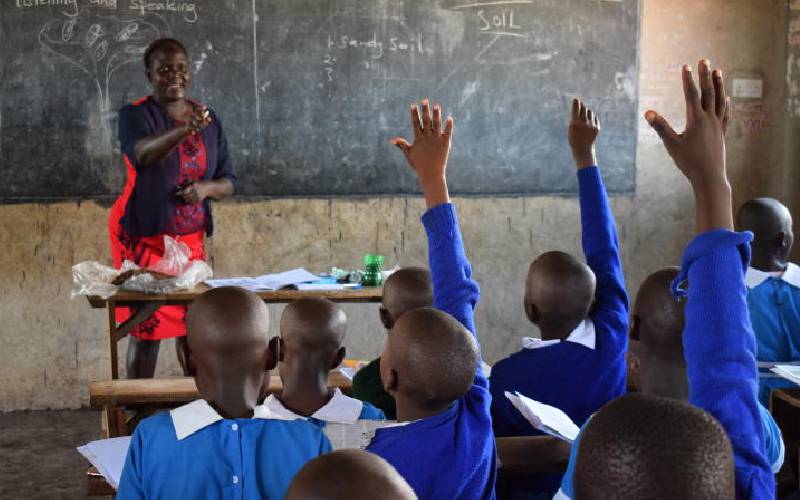×
The Standard e-Paper
Fearless, Trusted News

Ms Evaline Ogesa, a teacher at Shauri Yako Primary school in Homa Bay town teaches grade four pupils agriculture on January 10, 2020. [James Omoro,Standard]
The implementation of the Competency Based Curriculum (CBC) in the country has been met with criticisms from several quarters.